Events
Here you will find information about events in the Environmental Humanities. Recordings and reading lists from past events can be found among our resources.
Guest Lecture | Nicholas B. Miller "Knowing the Plantation: Global Forms, Local Variations and the Elasticity of Exploitation"
Knowing the Plantation: Global Forms, Local Variations and the Elasticity of Exploitation
03.11.2025, 16:15 - 17:45 Uhr| Vortragende: | Nicholas B. Miller |
Lecture & Conversation | Camille Lavoix "Re-imagining the Savanna"
"Re-imagining the Savanna"
31.07.2025, 11:15 - 12:15 Uhr| Ort: | Hubland Süd, Geb. PH1 (Philosophiegebäude), 4.U.6 |
| Vortragende: | Camille Lavoix |
Lecture and Conversation | Dr. Isabella Maria Engberg "The Narrative Interrelations of 'Early' Ecology in the Travel Writings of Alexander von Humboldt, Charles Darwin, and Ernst Haeckel"
"The Narrative Interrelations of 'Early' Ecology in the Travel Writings of Alexander von Humboldt, Charles Darwin, and Ernst Haeckel"
31.07.2025, 10:00 - 11:00 Uhr| Ort: | Hubland Süd, Geb. PH1 (Philosophiegebäude), 4.U.6 |
| Vortragende: | Dr. Isabella Maria Engberg |
Lecture & Conversation | Olivier van Beemen "In the Name of Animals – How an NGO Rules Over National Parks in Africa"
08.04.2025, 10:00 - 11:30 UhrGuest Lecture | Charlie Kaufhold "Der Klimawandel in unserer Gefühlswelt: Vom Umgang mit der Bedrohung und zur Notwendigkeit, handlungsfähig zu bleiben"
23.01.2025, 18:30 - 20:00 UhrGuest Lecture & Discussion | Brenda Kauffman "Eerie Echoes of the Silent Spring: Potential Impacts of the Trump Administration on the Environment"
02.12.2024Angebot des Career Centres | Climate Virtual Exchange – Facilitation Training (Fortbildung für Fortgeschrittene: Advanced Training)
10.03.2024Angebot des Career Centres | Climate Virtual Exchange – Facilitation Training (Fortbildung für Anfänger: Introduction to Online Dialogue Facilitation Course)
08.01.2024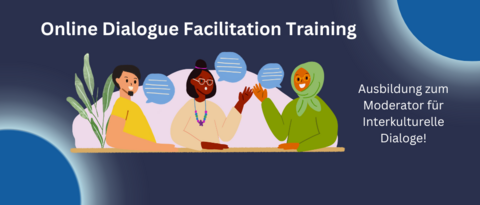
Im Rahmen des CliVEx-Projekts können Sie sich zu Facilitators (Online-Moderatoren) ausbilden lassen. In zwei Kursen, für Anfänger (ab 8. Jan.) und Fortgeschrittene (ab 10.März), erhalten Sie die Möglichkeit sich im kommunikativen Bereich weiterzubilden, sich selbst intensiv mit Kommunikation und dem Thema Klimawandel/Klimagerechtigkeit auseinanderzusetzen und Dialoge zu diesem und anderen Themen aktiv zu gestalten.
Mehr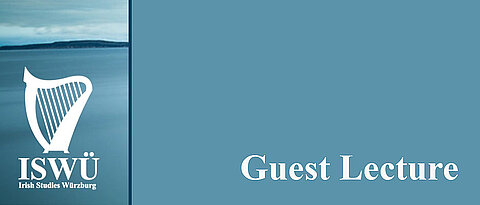
Novelist Edna O’Brien has come to be considered Ireland’s greatest living writer after decades of political denunciation and critical dismissal in her homeland since her groundbreaking 1960 Bildungsroman, The Country Girls. Beginning in the late 1990s, her work began to be taken seriously by literary critics. Most of the scholarship in O’Brien Studies since that time has comprised feminist and psychoanalytic studies, valuable work in positioning O’Brien in the canon. Building on that foundation, this lecture will bring more recent theoretical approaches to the fiction, including posthumanism and new materialism, with a focus on her controversial 2002 novel, In the Forest. O’Brien’s fiction draws on a childhood spent in a rural landscape alive with fairy lore and mythology, and her consistent representation of the distinction between the animate and the inanimate as tenuous is at once distinctly Irish and richly receptive to posthuman analysis.
Mehr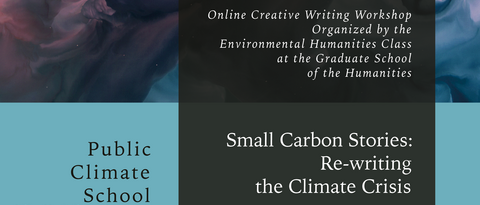
Participants in this online creative writing workshop will come together to draft and workshop stories that take up and transform the question of carbon, rendering encounters with this most critical molecule personal, intimate, and transmissible in new ways. This workshop is presented as a part of the Public Climate School initiative for free and open to the public.
Mehr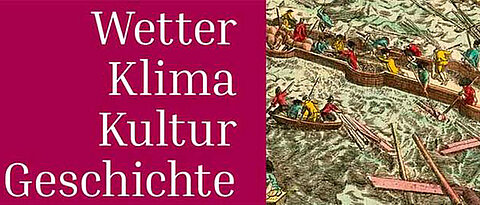
Heiße Sommer, fehlende Niederschläge, brennende Wälder, Wirbelstürme, steigende Meeresspiegel – diese und ähnliche Phänomene machen deutlich, dass der Klimawandel auch in unseren Breiten eine der grundlegendsten Herausforderungen im 21. Jahrhundert ist. Allerdings ist die enge Verflechtung von Wetter, Klima, Kultur und Geschichte nicht neu. Auch in vergangenen Jahrhunderten haben Stürme, Vulkanausbrüche oder Klimaveränderungen wie die sog. Kleine Eiszeit erhebliche Auswirkungen auf Gesellschaft, Kultur und Politik gehabt. Das Klima ist längst auch als Forschungsfeld in den Geistes- und Sozialwissenschaften angekommen. Doch allzu häufig wird es – Stichwort Klimawandel – als Problem der Gegenwart und Zukunft verstanden. Die Ringvorlesung soll einen Beitrag dazu leisten, Wetter und Klima auch als kulturelle, historische und soziale Phänomene zu verstehen. Gleichzeitig stellt sie die Frage, inwiefern der exemplarische Blick in die Kulturgeschichte des Klimas Modelle für die Bewältigung gegenwärtiger und künftiger Krisen vermitteln kann. Die Ringvorlesung findet jeweils dienstags um 19:30 Uhr im Toscanasaal der Residenz Würzburg (Südflügel, Residenzplatz 2) statt.
MehrKickoff | Teaching4Sustainability
07.07.2023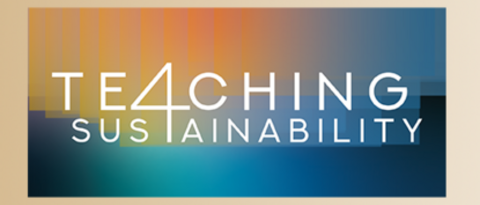
Imparting knowledge and competencies on sustainability within university teaching is one of the prerequisites for competently shaping the required socio-ecological transformation in a science-based manner. In Bavaria, legislation assigns education for sustainable development (ESD) to universities as one of their tasks. The transformation experiment "Teaching4Sustainability" in the sustainability laboratory WueLAB at the University of Würzburg will explore ways and means of implementing sustainability topics and higher education for sustainable development in the curricula of all academic subjects. We want to celebrate the start of the transformation experiment together with you on Friday, July 7th 2023, at 2 p.m. in the Lecture Hall of the Graduate School. In addition to a guest lecture by Prof. Dr. Georg Müller-Christ (University of Bremen) on the topic „Von der Ringvorlesung zum Pflichtfach: Die schwierige Reise einer Bildung für nachhaltige Entwicklung“ ("From lecture series to compulsory subject: The difficult journey of education for sustainable development"), representatives of all members of JMU will have the opportunity to contribute short talks. The event will conclude with a joint discussion. All faculty, students and staff of JMU are cordially invited to participate. Digital participation is possible. Please register for digital participation using the following link: https://www.uni-wuerzburg.de/universitaet/nachhaltigkeit/wuelab/aktuelles/auftaktveranstaltung-teaching4sustainability/
Mehr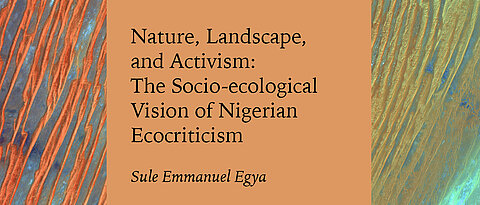
This is an in-person event that will be conducted in English in Room 6 of the Philosophy Building on the University of Würzburg's Hubland Campus. Please RSVP via camille.lavoix@uni-wuerzburg.de to reserve a spot.
Mehr





